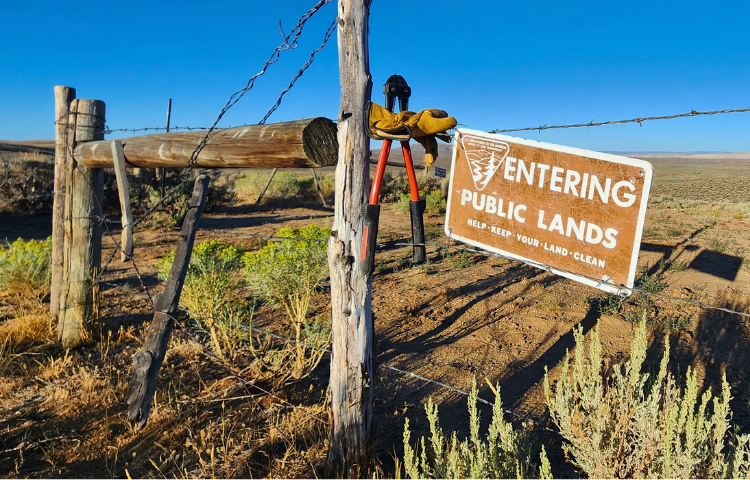Understanding Steve Pearce’s Record as He’s Nominated to Lead the BLM

On November 5, President Trump nominated Steve Pearce of New Mexico to serve as the 20th Director of the Bureau of Land Management (BLM). The BLM Director oversees the agency’s management of 245 million acres of federal public lands. The BLM sets policy direction, guides land-use planning, and balances uses such as energy development, grazing, habitat conservation, and outdoor recreation – decisions that directly shape wildlife habitat and hunters’ and anglers’ access for generations to come.
As hunters and anglers, we’re uniquely connected to the landscapes managed by the BLM. To safeguard our outdoor heritage, it is our responsibility to understand, engage with, and hold accountable those who will shape the future of our public lands.
As threats of public land sales and reduced protections have intensified in recent years, many are asking what Pearce’s nomination could mean for the millions of acres of BLM-managed land that the public rely on for hunting, fishing, access, and solitude.
Here is an overview of Mr. Pearce’s career and experience relevant to the management of our public lands and waters.
Early Days
Pearce, a decorated U.S. Air Force veteran who served as a C-130 pilot, has had a long career in both business and public service. Until 2003, he owned and operated Lea Fishing Tools, an oilfield services company based in Hobbs, New Mexico. During that period, Pearce launched his political career in the New Mexico House of Representatives, running unopposed in 1996 and 1998, and eventually serving as the Republican Caucus Chairman.
In 2003, Pearce entered national office as the Representative for New Mexico’s 2nd District, serving from 2003–2009 and again from 2011–2019. Pearce’s most notable Congressional achievements included supporting western oil and gas development, backing farm bill provisions to benefit ranchers, sponsoring legislation to support Native American housing assistance, and advancing land-transfer measures from a retired military installation for the Zuni Pueblo and Navajo Nation.
A Closer Look
In the past, Pearce has expressed support for hunting priorities, including serving as Vice Chairman of the Congressional Sportsmen’s Caucus and voting for the Sportsmen’s Heritage and Recreational Enhancement (SHARE) Act. Simultaneously, he has vocalized criticisms of select federal land management practices and has supported policies aimed at reducing federal authority over public lands. In 2012, Pearce described federal public lands as “starving” state education revenues, stating “if we want to reverse the trend, we’ll reverse this trend of public ownership of lands,” arguing that western lands should have been “returned to the states,” despite the lands not having been in state ownership prior. Two months later, he wrote to then-House Speaker John Boehner urging consideration of public land sales and expanded energy development as part of federal deficit reduction efforts, writing, “The federal government owns roughly 650 million acres of land… Over 90% of this land is located in the western states and most of it we do not even need.”
In 2016, Pearce co-sponsored the Hunting, Education, and Recreational Development Act or HEARD Act, which proposed selling select federal public lands to support education and recreation funding. The following year, he called for an 88% reduction in size of Organ Mountains–Desert Peaks Monument, targeting the Desert Peaks portion of the monument, an area coveted by hunters. Soon after, Pearce voted for a bill aimed at restricting executive authorities to designate national monuments under the Antiquities Act of 1906.
Parting Thoughts
Pearce’s long public record demonstrates he’s been deeply involved in land-use issues throughout his career. As he begins the nomination process to lead the agency overseeing the largest land base in the nation, it is fair—and necessary—for hunters and anglers to ask how he intends to conserve the landscapes that support our way of life.
Rooted in nonpartisanship, Backcountry Hunters & Anglers (BHA) remains committed to working with any leader who advances the conservation of America’s public lands. While BHA firmly opposes the large-scale sale, transfer, or privatization of these lands, we welcome the opportunity to hear directly from Mr. Pearce about his plans for stewarding the landscapes hunters and anglers depend on. As the confirmation process unfolds, we will closely evaluate his record and statements – and we encourage our members to stay informed and engaged every step of the way.
5650